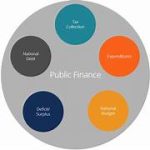How Governments Can Make Wise Economic Policies and Reforms
Introduction
Economic policies and reforms play a crucial role in shaping a nation’s financial stability, growth, and development. Governments must carefully design and implement policies that balance economic growth, social welfare, and fiscal responsibility. This article explores key principles, challenges, and strategies that governments can adopt to make wise economic policies and reforms.
1. Understanding Economic Policy and Its Importance
Economic policies refer to government decisions regarding taxation, spending, monetary regulation, trade, and labor laws that impact a country’s economy. Well-designed economic policies ensure:
- Sustainable growth
- Job creation and employment stability
- Price stability and inflation control
- Equitable wealth distribution
- Investment in critical sectors
2. Key Principles for Wise Economic Policies
To ensure economic success, governments must adhere to fundamental principles when crafting policies and reforms.
a. Evidence-Based Decision Making
- Economic policies should be based on data, historical trends, and expert analysis.
- Governments should conduct impact assessments before implementing major reforms.
b. Fiscal Responsibility and Sustainability
- Avoid excessive borrowing and unsustainable deficits.
- Prioritize efficient public spending on infrastructure, education, and healthcare.
- Implement fair and progressive taxation policies.
c. Balancing Free Markets and Government Intervention
- Encourage entrepreneurship and business growth while protecting public interests.
- Implement regulations that prevent market failures, monopolies, and economic inequality.
d. Transparency and Public Accountability
- Economic reforms should involve public consultations and parliamentary debates.
- Clear communication of policy objectives enhances trust and compliance.
e. Flexibility and Adaptability
- Policies should be designed to adapt to changing economic conditions, such as global financial crises or technological advancements.
- Periodic evaluations and adjustments ensure long-term effectiveness.
3. Strategies for Effective Economic Reforms
Economic reforms aim to improve efficiency, productivity, and equity in the economy. Governments can adopt the following strategies to ensure successful reforms:
a. Structural Reforms for Economic Growth
- Improve infrastructure to facilitate trade and investment.
- Enhance digital transformation to boost productivity.
- Encourage innovation and research development.
b. Labor Market Reforms
- Implement policies that support fair wages and job security.
- Invest in vocational training and education to build a skilled workforce.
- Encourage labor market flexibility to attract foreign investments.
c. Taxation and Revenue Policies
- Create a fair tax system that minimizes evasion and broadens the tax base.
- Provide tax incentives for small businesses and startups.
- Ensure progressive taxation to reduce income inequality.
d. Trade and Investment Policies
- Promote international trade agreements that benefit local industries.
- Reduce barriers to foreign direct investment (FDI) while protecting national interests.
- Encourage sustainable and ethical trade practices.
e. Social Welfare and Inclusive Policies
- Strengthen social safety nets, such as unemployment benefits and food assistance programs.
- Reduce poverty through targeted financial aid and public housing projects.
- Support gender and minority inclusion in the economy.
4. Challenges in Implementing Economic Policies and Reforms
Governments often face difficulties in executing economic reforms effectively. Key challenges include:
- Political Resistance: Opposition from interest groups and policymakers can delay reforms.
- Short-Term vs. Long-Term Goals: Politicians may prioritize short-term economic gains over long-term stability.
- Economic Uncertainty: Global recessions, pandemics, and geopolitical conflicts can disrupt policy outcomes.
- Corruption and Mismanagement: Inefficiencies in governance can undermine policy effectiveness.
Conclusion
Wise economic policies and reforms require a combination of careful planning, evidence-based decision-making, and a commitment to fiscal responsibility. Governments must balance economic growth with social equity, ensuring that policies benefit all citizens. By addressing key challenges and continuously evaluating policy effectiveness, nations can achieve sustainable economic development and long-term prosperity.


